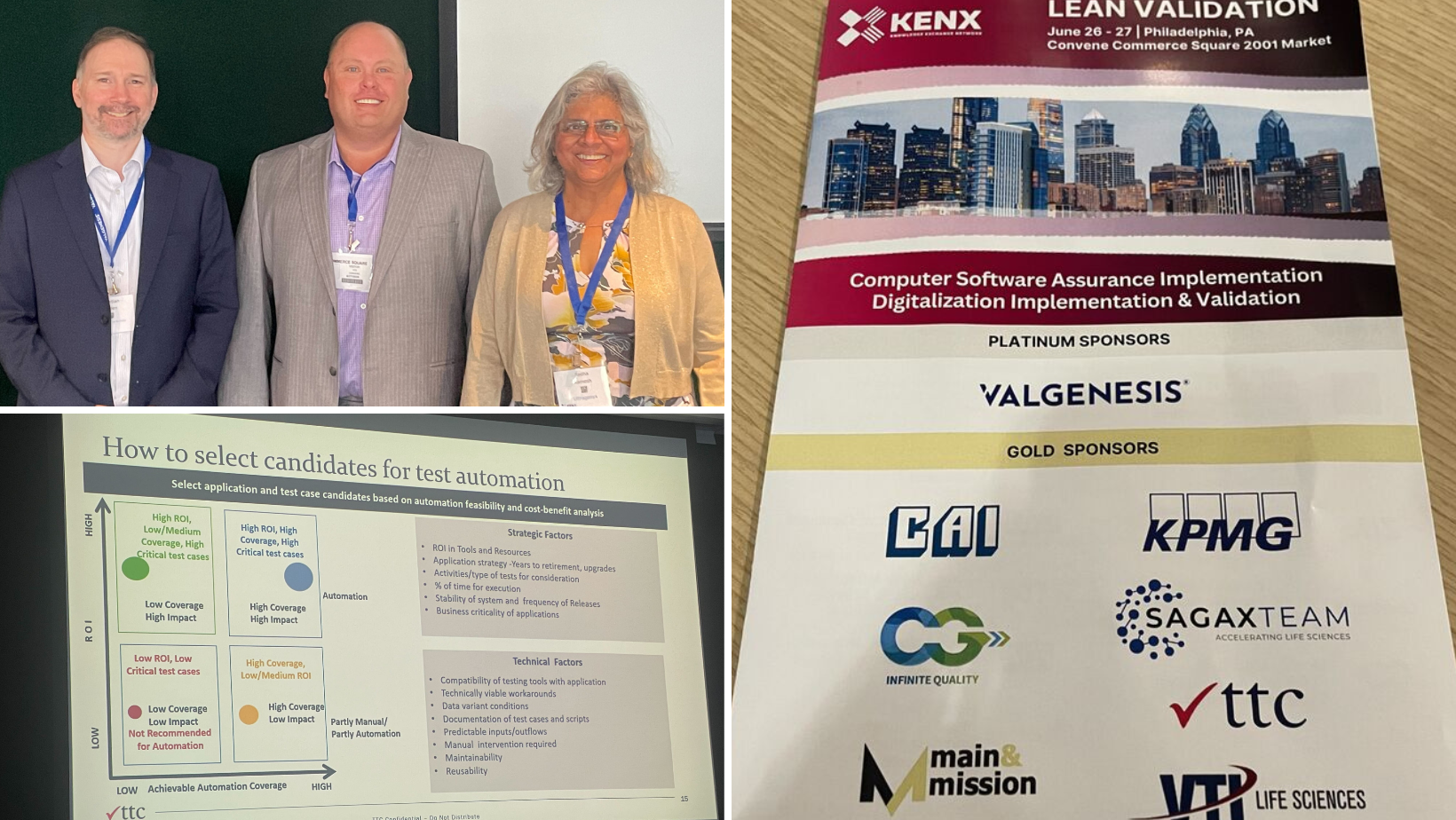The Future of CSA and AI in Healthcare
The Latest Trends Discussed at the 2024 KENX Lean Validation Conference
At the end of June, I had the privilege of attending the KENX Lean Validation conference in Philadelphia, Pennsylvania alongside other members of the TTC US team. It was an excellent conference with a packed house of experts in their fields!
The event also featured a ton of great speakers including: Rosalind Beasley, MBA, PMP®, CSM®, Sachin Bhandari, Harsha Chulki, Ray Murphy, Chinmoy Roy, Madhavi Ganesan, Margaret Hindley MBA, PhD, CQA, CQE, and Leslie Lighton-Humphreys. I also had the opportunity to speak at the event and led a discussion about Test Automation and Computer Software Assurance (CSA). Thank you to my co-panelists, Christian Gaden and Radha Ramesh for helping to drive the discussion on Automated Testing and how CSA provides the framework to automation at any company.

There were two major components of the conference. One included the shift to CSA, and the other focused on the use of Artificial Intelligence (AI) within the healthcare and life sciences space.
Based on the conference sessions and discussions, the shift to CSA is here to stay! This shift allows us to focus on value-added activities versus the non-value-added activities of the past using a common sense approach to assessing risk. Those non-value-add activities can be eliminated by a simple risk assessment, with a mitigation that points to current standards of efficiency, or the ability to correct the issue if it presents itself.
If we know we are going to get the same result 99 times out of 100, are able to detect the failure when it happens and catch the issue 100% of the time there is ultimately minimal risk. This allows us to shift our focus into more thorough end to end business scenarios to dive deeper into “What happens when…?” It allows us to look at the broader picture instead of being focused in the minutia.
The other half of the conference focused on the shift to artificial intelligence and its role within health and life sciences companies. While the current use of AI is far from the imagined worlds created in science fiction, we are using AI to aid jobs today. It is currently being used for some basic things such as internal Q&A applications, as well as some introductory patient intake forms. It helps gather information and put it into a nice package that is easily digestible, resulting in a quick human decision.
Incorporating it into our day-to-day processes can be challenging, but luckily we have bright minds such as Sachin Bhandari who are leading the charge and currently using AI in practice today. We may still long for AI as our utopian AutoDoc 3000 of the future, that scans and heals us with a few shots and laser passes, but this conference gave me great hope of what is to come.
One of the main takeaways from this conference and my observations over the last few years is that both CSA and AI have the ability to make the patient's outcome better. CSA will add more value-added activities, eliminating waste and ultimately providing a better, more cost-effective treatment to the patient. AI, on the other hand, has the ability to eliminate diagnoses and treatment plans based upon lab results and intake questions.
Ultimately, this conference brought together a great collection of individuals from all over the globe who shared experiences and thoughts of how CSA and AI are here to shape the future of Health and Life Sciences. The future looks mighty bright!




